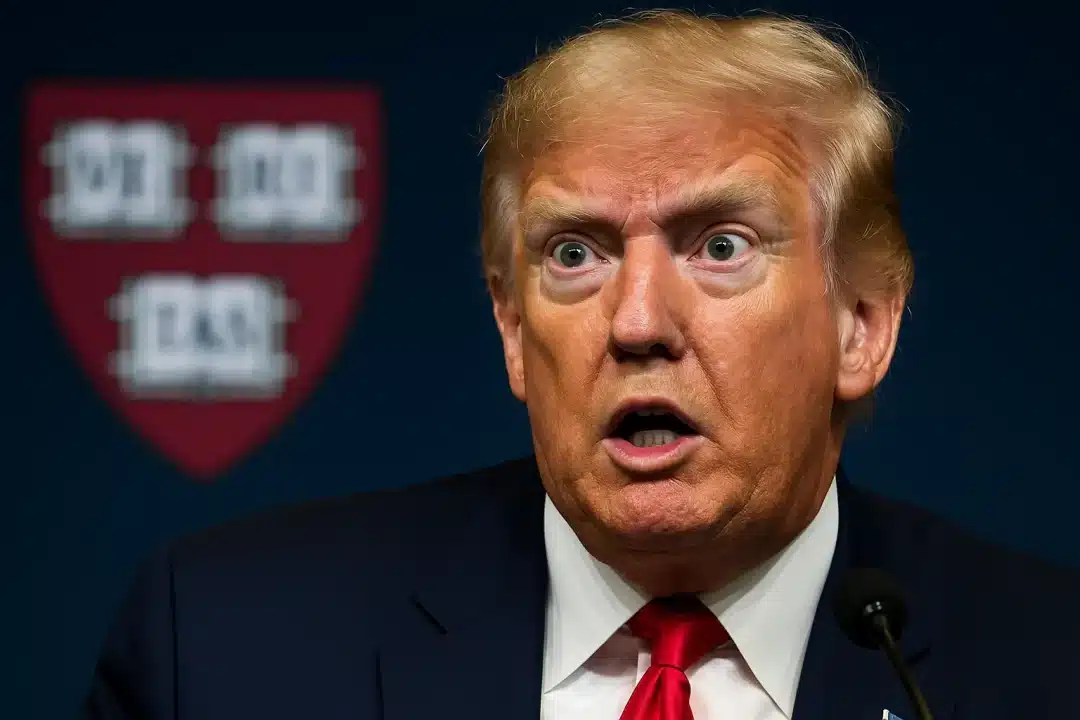Harvard University has launched a legal battle against the Trump administration over a new federal rule that blocks international students from enrolling at U.S. colleges, marking a dramatic escalation in tensions between the White House and the nation’s academic institutions.

The lawsuit, filed Thursday in a federal court, challenges the Department of Homeland Security’s updated visa guidance, which bars new F-1 and M-1 student visa holders from entering the U.S. for initial enrollment.
The university argues the rule is “arbitrary, capricious, and unlawful,” violating the Administrative Procedure Act and threatening the diversity, innovation, and global reputation of American higher education.
Harvard: Ban Will “Irreparably Harm” Institutions and Students
Harvard President Alan Garber described the rule as “deeply damaging,” warning it will force top global talent to look elsewhere and undermine U.S. leadership in research and education.
In court filings, the university emphasized that international students make up more than 25% of its graduate programs and play a critical role in campus life and scientific research.
“This isn’t just about Harvard,” Garber said in a public statement. “This affects thousands of students and institutions across the country. If allowed to stand, the policy will cause long-term harm to America’s standing in the world.”
What the Trump Administration Is Saying
The Trump administration, through DHS and Immigration and Customs Enforcement (ICE), has defended the move as part of its broader immigration crackdown and focus on national security.
A senior DHS official told reporters the decision was meant to prioritize “American students and workers” as part of President Trump’s America First agenda.
Critics, however, argue the rule is politically motivated and lacks a clear rationale, especially as it applies only to new students, not those already enrolled.
Legal and Political Implications
Legal experts say the case could set a significant precedent. “This is not just an academic dispute,” said immigration attorney David Leopold. “This is a major test of how far executive power can go in unilaterally altering immigration policy without congressional input.”
The lawsuit revives memories of Harvard’s 2020 lawsuit against the Trump administration over a similar international student ban during the COVID-19 pandemic.
In that case, the administration reversed its position following intense legal and public pressure.
“This new rule is a reprise of a failed policy,” said Garber. “We’re confident the courts will again find it unlawful.”
International Fallout and Student Anxiety
The rule has sparked widespread concern among current and prospective international students.
At Harvard and across the Ivy League, hundreds of admitted students say they are now reconsidering their plans to study in the U.S., citing visa uncertainty and an increasingly hostile political environment.
“Being denied a visa after earning admission to one of the world’s top universities is devastating,” said Priya Desai, an incoming graduate student from India. “It’s not just about education — it’s about dreams, careers, and futures.”
Other U.S. universities are considering joining Harvard’s lawsuit or filing their own challenges, according to the Association of American Universities (AAU).
“This policy threatens the core of U.S. higher education,” said AAU President Barbara Snyder. “We are united in pushing back.”
What Happens Next?
The Biden-appointed federal judge overseeing the case has not yet ruled on Harvard’s request for an immediate injunction.
A decision could come within weeks, potentially determining whether international students can begin their programs in the U.S. this fall.
Until then, Harvard officials say they will continue to support affected students and press for a reversal of what they call an “anti-education” directive.
“The stakes are too high to stay silent,” said Garber. “This is about who we are as a country — and who we want to be.”
